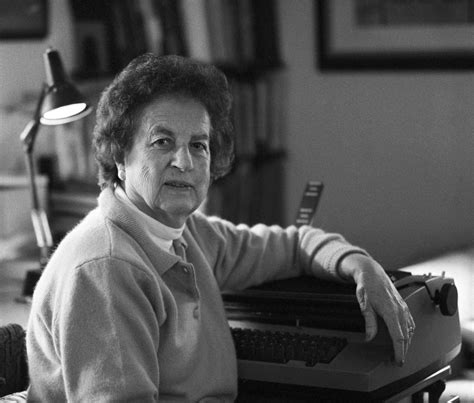A Quote by Milan Kundera
In Tereza's eyes, books were the emblems of a secret brotherhood
Related Quotes
In Tereza’s eyes, books were the emblems of a secret brotherhood. For she had but a single weapon against the world of crudity surrounding her: the novels. She had read any number of them, from Fielding to Thomas Mann. They not only offered the possibility of an imaginary escape from a life she found unsatisfying; they also had a meaning for her as physical objects: she loved to walk down the street with a book under her arm. It had the same significance for her as an elegant cane from the dandy a century ago. It differentiated her from others.
Symbols and emblems were everywhere. Buildings and pictures were designed to be read like books. Everything stood for something else; if you had the right dictionary, you could read Nature itself. It was hardly surprising to find philosophers using the symbolism of their time to interpret knowledge that came from a mysterious source.
Tereza's mother never stopped reminding her that being a mother meant sacrificing everything. Her words had the ring of truth, backed as they were by the experience of a woman who had lost everything because of her child. Tereza would listen and believe that being a mother was the highest value in life and that being a mother was a great sacrifice. If a mother was Sacrifice personified, then a daughter was Guilt, with no possibility of redress.
When I lived in China, there were no libraries. My mother bought books for me, and they were mostly the classics. I read 'Peter Pan,' 'The Secret Garden,' the 'Rosemary' books, and Kipling's 'Just So' Stories was one of my favorites. No, I didn't read historical fiction. It didn't exist where I was growing up in China.
When I was growing up, books took me away from my life to a solitary place that didn't feel lonely. They celebrated the outcasts, people who sat on the margins of society contemplating their interiors. . . Books were my cure for a romanticized unhappiness, for the anxiety of impending adulthood. They were all mine, private islands with secret passwords only the worthy could utter.
...The lesson [comic books] taught children- or this child, at any rate- was perhaps the unintentionally radical truth that exceptionality was the greatest and most heroic of values; that those who were unlike the crowd were to be treasured the most lovingly; and that this exceptionality was a treasure so great that it had to be concealed, in ordinary life, beneath what the comic books called a 'secret identity'.
Books -lighthouses erected in the great sea of time -books, the precious depositories of the thoughts and creations of genius -books, by whose sorcery times past become time present, and the whole pageantry of the world's history moves in solemn procession before our eyes, -these were to visit the firesides of the humble and lavish the treasures of the intellect upon the poor.


































